Friday night seemed like a contradiction in terms. The #EndWhiteSilence demonstration promoted by Showing Up for Racial Justice’s local chapter CU-SURJ, which was held in conjunction with the Juneteenth national weekend of action organized by the Movement for Black Lives, was fairly noiseless. Approximately one hundred people lined the sidewalk at social distances on each side of Vine Street in front of the Urbana Police Department, holding signs that affirmed that “Black Lives Matter,” and pledging to “#EndWhiteSilence.” Roughly the same number did the same in front of the Champaign Police Department. In Urbana, passing motorists honked, waved, gave thumbs up, and shouted their encouragement, but during traffic lulls people talked quietly or said very little from behind their masks.
CU-SURJ local lead elizaBeth Simpson addressed that discomfort suggesting that the silence being addressed was not silence in that moment, but in the moments to come. As promised in the publicity for the event, there came a time when she urged us to “Consider telling your neighbor who you are going to talk to, about what, by when.” The specificity being encouraged was welcomed but also did not seem to be entirely realized in that moment.
Amy Thoren, pastor at Saint Andrew’s Lutheran Campus Center, was the seed for Friday night (a seed is a person who is committing to showing up, so others can know that they won’t be alone) and handed out fliers with information on things to do. At the start she told a few of us “the idea is to get people talking about what they’re doing and how we can help each other.”
I stood in that silence holding my sign (which read #EndWhiteSilence and #BlackLivesMatter) for a while but eventually walked around to see if the soft conversations surrounding me were the productive commitments to action for which the organizers hoped. Here are some of the things I heard (and yes, all parties knew they were being recorded):
“This is a good beginning but this can’t be where it ends. People need to grow through this discomfort that they may feel. We just saw a Black man not be super-supportive of this, and instead of chastising him: Maybe wonder why. Maybe this comes off as performative. When moments like that come, which are inevitable, they’re something that we need to grow from rather than get defensive.”
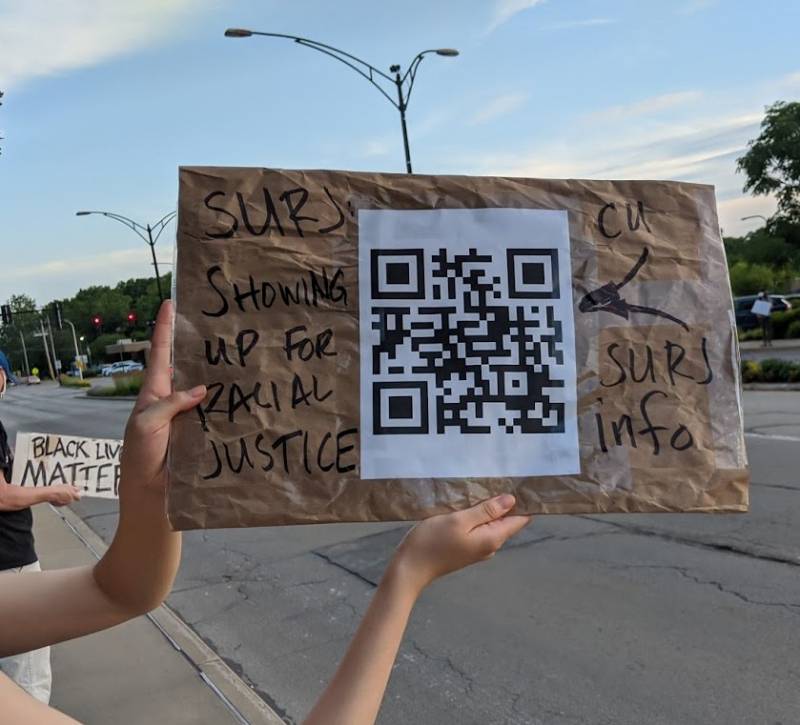 Photo by Kelley Wegeng.
Photo by Kelley Wegeng.
“We need to make sure this turns into systemic change, that this doesn’t just start with awareness, that it keeps going, and then we recognize it’s about systems and dismantling them: Abolishing the police, abolishing prisons, and how do we reallocate funding, how do we reallocate wealth, because I think that’s a huge part of the problem.”
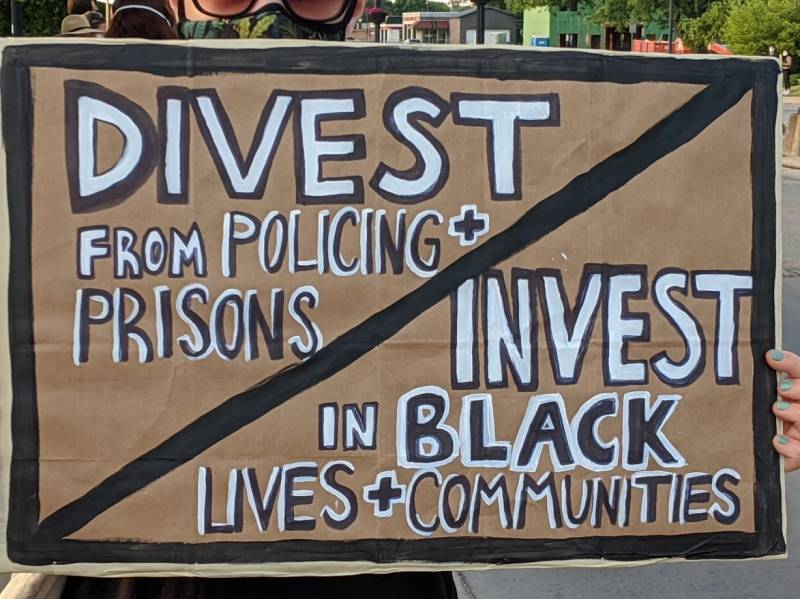
Photo by Kelley Wegeng.
“Part of it is we need to be critical about all forms of oppression and how they interconnect with racism as well. So, it’s not just about racism, but it’s also about all the intersectionality aspects, so thinking about Black trans women, thinking about Black women, all of the different intersectionality aspects, and making sure that all of those voices are fully understood and heard, and we’re being critical with those respective forms of oppression as well.”
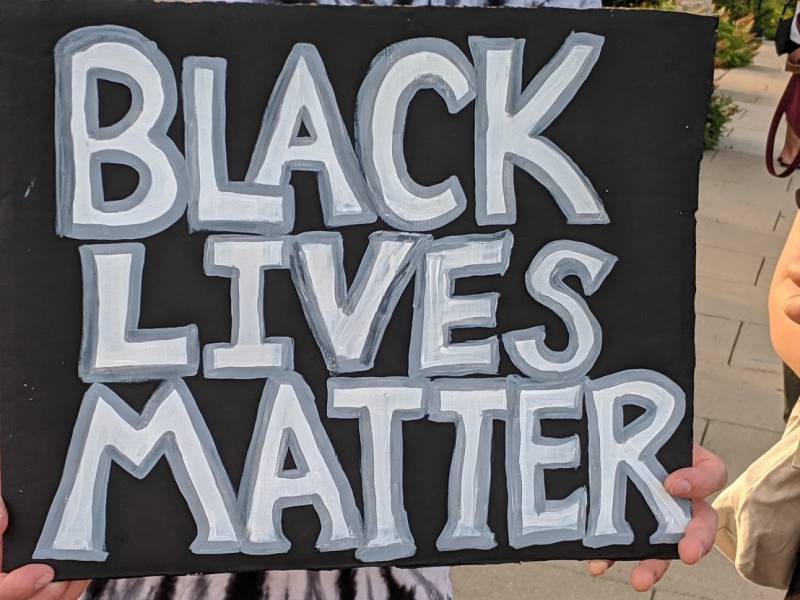
Photo by Kelley Wegeng.
“I’m remembering one of my first teachers on racism in St. Louis, Amy Hunter, who is an African American leader of the YWCA, and she talked about ending racism as “the greatest love story not yet written, in the process of coming home to each other’s hearts,” and I think that the more that I travel this journey, the more I feel the promise of love that awaits us as we decompose internalized white supremacy and come home to each other. I’ve definitely just been enjoying the honesty and the forgiveness and the moving past shame that’s happening in my own family, and coming to realize really deeply that ending racism is squarely the responsibility of white people. And so I’m really grateful to be out on the street and just seeing and feeling more white people who are here to do the work and keep reaching for each other.”
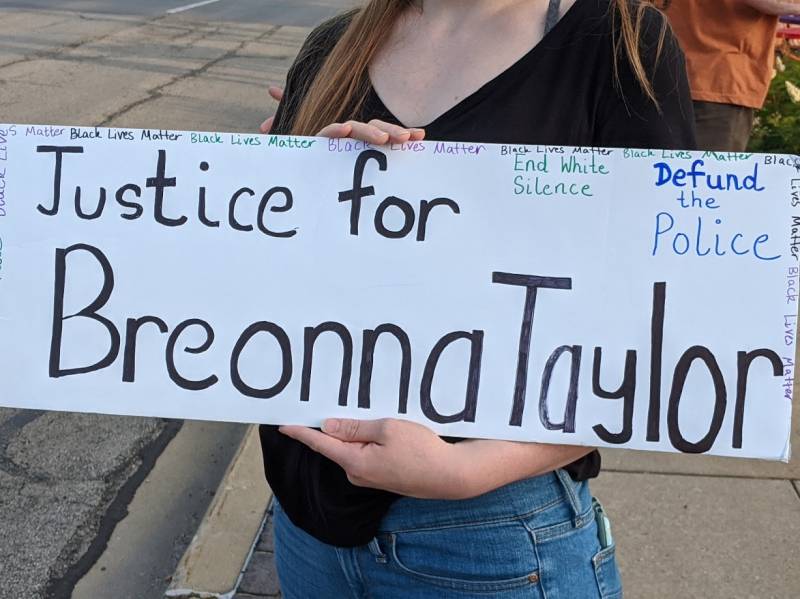
Photo by Kelley Wegeng.
“I think that as a white person it’s really important for us to start listening to Black voices and to learn from Black voices, and to start standing up against racism, against bigotry, and it’s far past time that white folks join in. And I just encourage everybody to take the time — if talking about anti-racism and being anti-racist makes you uncomfortable — just to sit with those feelings of discomfort and try to understand where those come from, and to continue to listen and learn from Black voices so that we can work for justice, real and lasting justice for all people.”
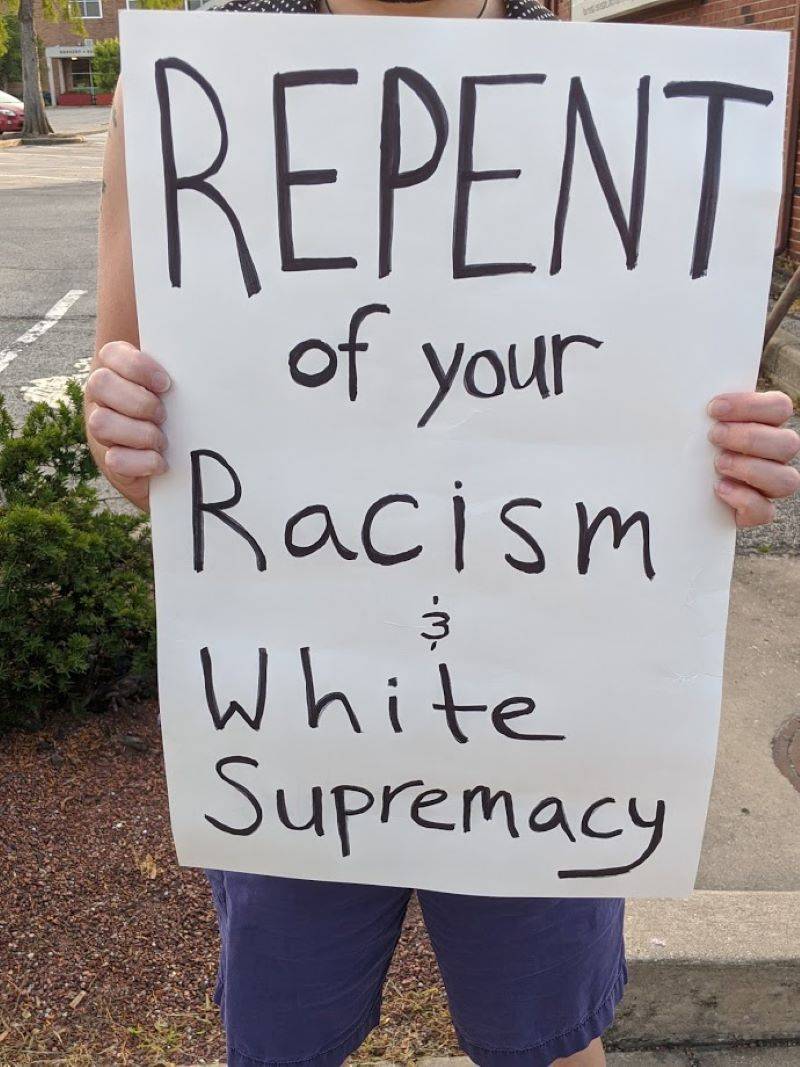
Photo by Kelley Wegeng.
“I’m very appreciative of seeing how many people decided to come out, especially the youth that are coming out, to be able to stand out, to show that they support us; they’re taking a stand for a cause. Most people just want to hide behind their phones, and behind Twitter and so forth (and I might sound like an old timer for this), but you know we’re very plugged in to our technology and to our smartphones. It seems like the smartphone has become the new brain for ourselves. So it’s nice to see us actually take a stand out here, with our signs, with our actual physical beings, and actually be out in the world to be able to show our support, and to be able to actually take a stand for a really good cause like this.”
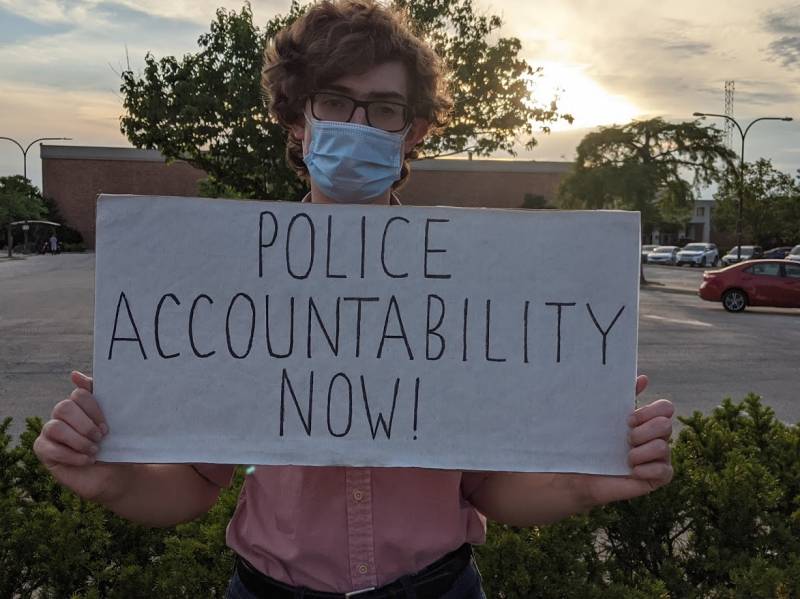
Photo by Kelley Wegeng.
Over and over I heard similar comments. “We have to keep the energy going. This can’t be one of those little trendy things.” “I hope this continues.” “I’m hopeful.” “I hope this carries through.” “I’m beginning to think that things will change.” “There is a positive response to what we’re doing and what we need to do is to keep that going.”
How can we keep that going? The #EndWhiteSilence event page suggested that we “have or make a plan to do something specific to #endwhitesilence.” An email about the event said “we are especially calling in white folks to make a commitment to talk to bosses, coworkers, representatives, friends, family, etc. and let them know about your support for the Movement for Black Lives and call them in to join you.” They also said “Get yourself on the SURJ email list so SURJ can keep sending out information on events and action items.”
In addition to that, there are many local organizations with Facebook pages you can follow which include Ubuntu Project – Champaign-Urbana, Build Programs Not Jails, and Education Justice Project, as well as CU-SURJ.
There are a lot of important voices with Twitter accounts, including Ijeoma Oluo, Ally Henny, Roxane Gay, and you can even follow Michelle Alexander’s publisher’s account supporting her important book The New Jim Crow.
Finally, if you are a person of means and you are inclined to help monetarily, I suggest buying from Black-owned businesses, patronizing Black-owned restaurants (a list of which can be found here), and donating to Champaign County Bailout Coalition and First Followers.
Of course, if you’re a reader, I also suggest reading Ibram X. Kendi’s How to Be an Antiracist, if possible buying it from a Black-owned bookstore, but know that according to Dr. Nicole A. Cooke, “reading is only a step on the path to antiracism.”
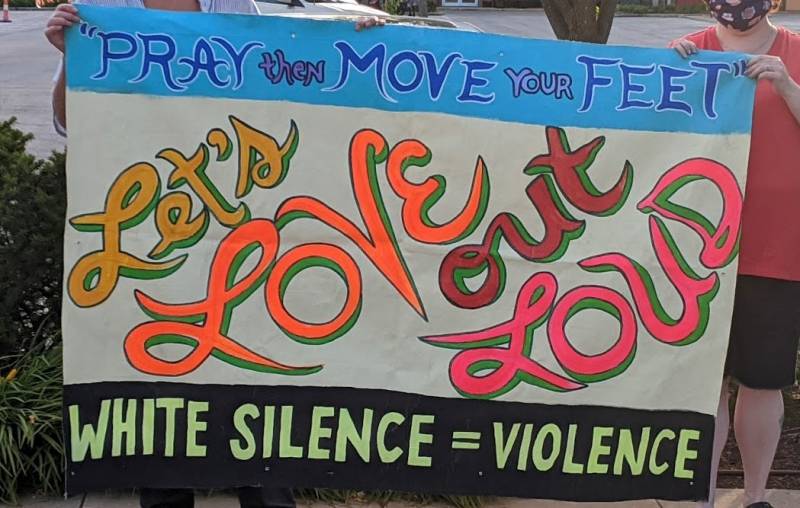
Photo by Kelley Wegeng.








